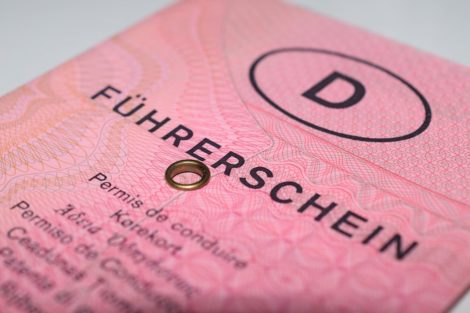The term leave is generally used to refer to the five weeks of paid leave. But this is not always the case, the same term encompasses several other meanings. In this new article on the subject, we will focus on eleven new types of leave.
In the following few lines, we will try to make you discover paternity leave, leave for sick children and sabbatical leave in particular. We hope that our approach will allow you to discover all these leaves and their modalities and that all this will be useful to you.
THE LEAVEPATERNITY AND RECEPTION OF THE CHILD
In France, paternity and childcare leave is listed in articles L1225-35, L1226-36 and D1225-8 of the Labor Code. It is made available to all employees, who become fathers, regardless of their professional activity, seniority, type of employment contract and social status. Self-employed workers can also take advantage of this type of leave. The length of paternity and childcare leave varies according to the number of births. It lasts 11 days including weekends when there is a single birth, 18 days in the case of multiple births. In addition, it can be taken after the 3 legal days of birth leave.
The 11/18 days of paternity and childcare leave cannot be divided.
ADOPTION LEAVE
Adoption leave is leave that any employer has the obligation to grant to any employee who adopts one or more children. When the employment contract does not cover salary maintenance, the employee who has taken this leave may be compensated if he meets the following conditions:
- have been registered with the social security system for at least 10 months
- have worked on average for 200 hours during the 3 months preceding adoption.
The duration of adoption leave may last:
- 10 weeks for a first or second child
- 18 weeks when adopting a third or more child
- 22 weeks when it is a multiple adoption and you already have two dependent children.
It generally begins in the week preceding the adoption of the child (ren) and can be combined with the 3 days of compulsory birth leave.
The leave may be divided between the two parents, which will add another 11 or 18 days if several children are integrated into the home.
SICK CHILD LEAVE
Sick child leave is leave that allows an employee to be temporarily absent from work to be able to take care of his sick child. According to the provisions of article L1225-61 of the Labor Code, certain conditions govern this leave, including the fact that:
- the employee's child must be under 16,
- the employee must be responsible for the child.
On the other hand, leave for children is granted neither according to the seniority of the employee nor according to his position within the company. In short, the employer is obliged to grant it to any employee of the company.
This leave, in addition to being unpaid, has a duration that varies according to the employee's age and number of children. It therefore lasts:
- 3 days for a child under 16,
- 5 days for a child under 1 year old,
- 5 days for an employee who cares for 3 children under the age of 16.
In some cases, the collective agreement grants a longer period of leave for sick children, inquire.
SABBATICAL LEAVE
The sabbatical leave is this leave which gives any employee the right to be absent from work for a regulated period, for personal convenience. It can only be granted to an employee having:
- at least 36 months of seniority within the company,
- having on average 6 years of professional activity,
- who have not benefited from individual training leave, leave for setting up a business or sabbatical leave during the previous 6 years within the company.
The duration of sabbatical leave generally varies between 6 and 11 months maximum. In addition, during this period, the employee receives no remuneration.
LEAVE FOR DEATH
The Labor Code, by its article L3142-1, provides in the event of the death of a member of the employee's family for specific leave known as death leave. It is granted to all employees without any seniority condition. In addition, the length of the bereavement leave varies depending on the bond that the employee shares with the deceased. It is therefore to:
- 3 days in the event of the death of a married spouse, a civil partner or a partner.
- 3 days for the death of the mother, father, brothers or sisters or in-laws (father or mother)
- 5 days for the dramatic case of the loss of a child.
Certain collective agreements have increased the length of absences fixed by law. A new law should soon appear to extend the leave for a dead child to 15 days.
PARENTAL PRESENCE LEAVE
The law provides for all employees with special leave called parental leave. This leave gives the employee the possibility of stopping work to take care of his child who would present a state of health which requires restrictive care and a sustained presence.
Parental leave is only granted to private sector employees, permanent civil servants, non-permanent agents and trainees.
In short, it is only granted when the child has a disability, a serious illness or is the victim of a particularly significant accident. Unfortunately, it is unpaid and has a maximum duration of 310 days.
CAREER LEAVE
According to the law 2019-1446 of December 24, 2019, any employee is entitled to stop work to come to the aid of a loved one who would have a serious loss of autonomy or would be disabled. This leave, called caregiver leave, has no impact on the employee's employment.
To benefit from it, the employee must have on average 1 year of seniority within the company. In addition, the relative to be helped must imperatively reside permanently in France. It can therefore be a spouse, a brother, an aunt, a cousin, etc. It can also be an elderly person with close ties to the employee.
The length of caregiver leave is limited to 3 months. However, it can be renewed.
Some collective agreements offer more favorable conditions, again don't forget to inquire.
FAMILY SOLIDARITY LEAVE
The law provides for employees whose loved one is the victim of an incurable illness a special leave called family solidarity leave. Thanks to this leave, the employee can reduce or temporarily stop working to better care for a seriously affected loved one. The latter can be a brother, a sister, an ascendant, a descendant, etc.
The duration of family solidarity leave is a minimum of 3 months and a maximum of 6 months. In addition, during the period of leave, the employee can receive 21 days of compensation (full time) or 42 days of compensation (part time).
MARRIAGE LEAVE
The law provides for all employees exceptional days of leave for the marriage, PACS or the marriage of one of their children. In addition, according to the terms of articles L3142-1 and following of the Labor Code, any employer is obliged to grant paid marriage leave or PACS to employees who request it. In addition, the employee can take advantage of it whether he is on a CDD, CDI, internship or temporary work.
In short, when an employee marries or concludes a PACS, he benefits from a leave of 4 days. In the case of the marriage of his child, the employee is entitled to 1 day off.
FULL-TIME PARENTAL LEAVE
Full-time parental leave is another type of leave granted to employees when a child is born or adopted. It is granted to any employee having on average 1 year of seniority in the company. This seniority is generally judged either according to the date of birth of the child or that of the arrival in the home of the adopted child.
Full-time parental leave for a maximum of 1 year, renewable under certain conditions. On the other hand, if the child is the victim of an accident or a serious handicap, it is possible to extend the leave for another 1 year. However, full-time parental leave is unpaid.
LEAVE FOR THE EXERCISE OF A LOCAL POLITICAL MANDATE
The law provides for any employee who exercises a local political mandate to benefit from authorizations and hour credits. Thus, the leave for the exercise of a local political mandate gives the employee the possibility of fulfilling his obligations according to his mandate (elected regional, municipal or departmental).
It should be noted, among other things, that the duration of these absences is not defined in advance. In addition, all employers are obliged to allow any elected employee the time necessary to properly exercise their mandate.




